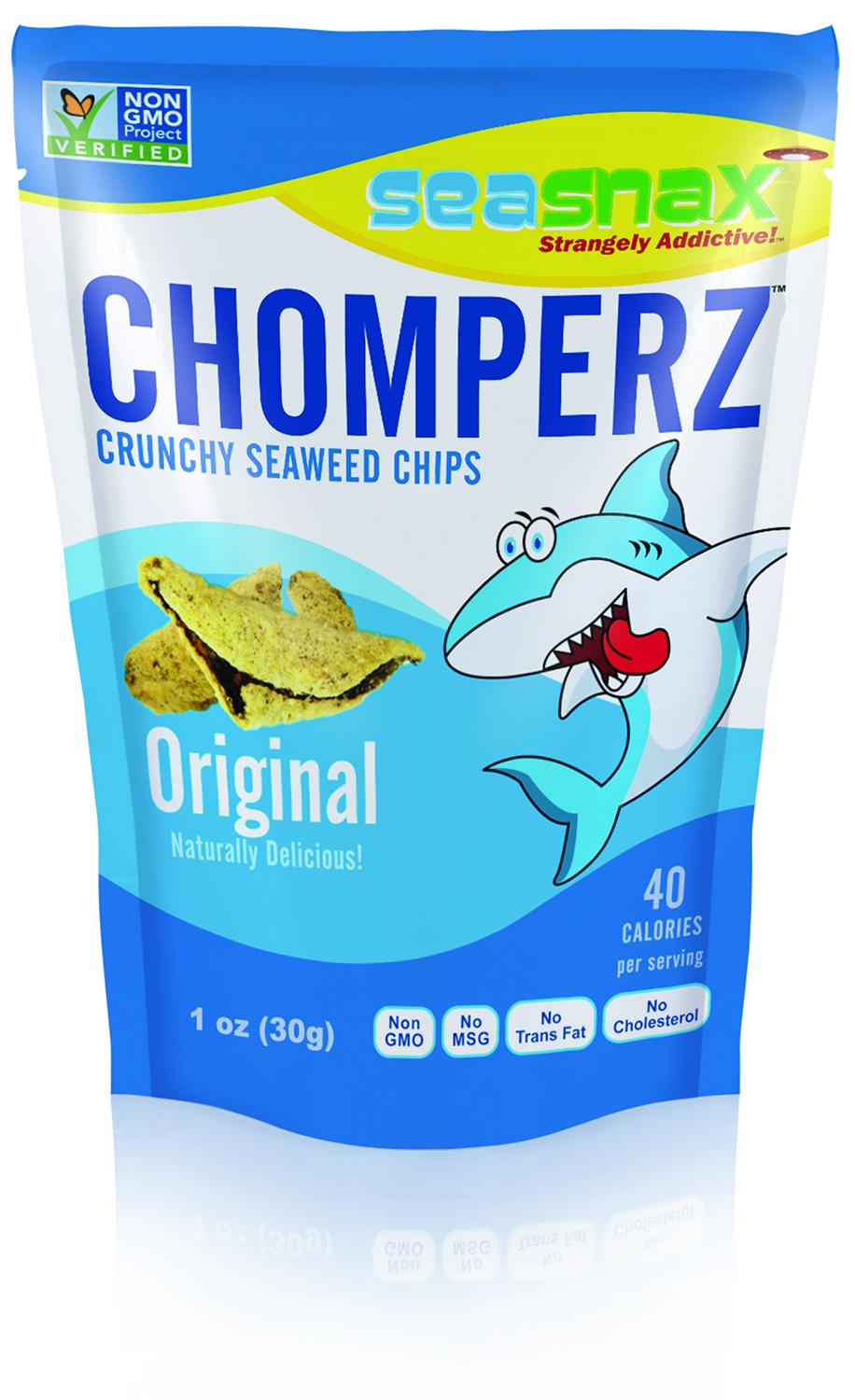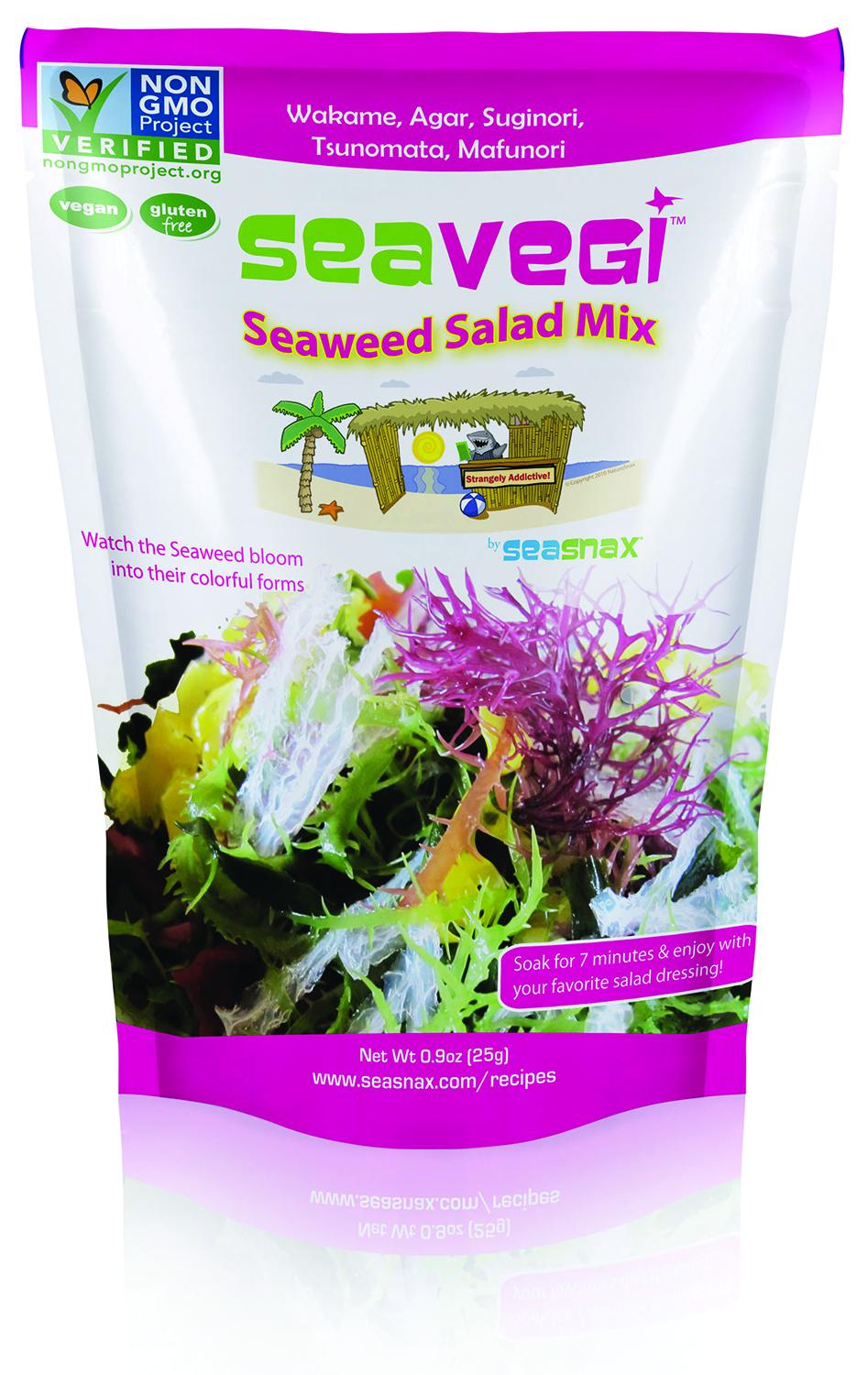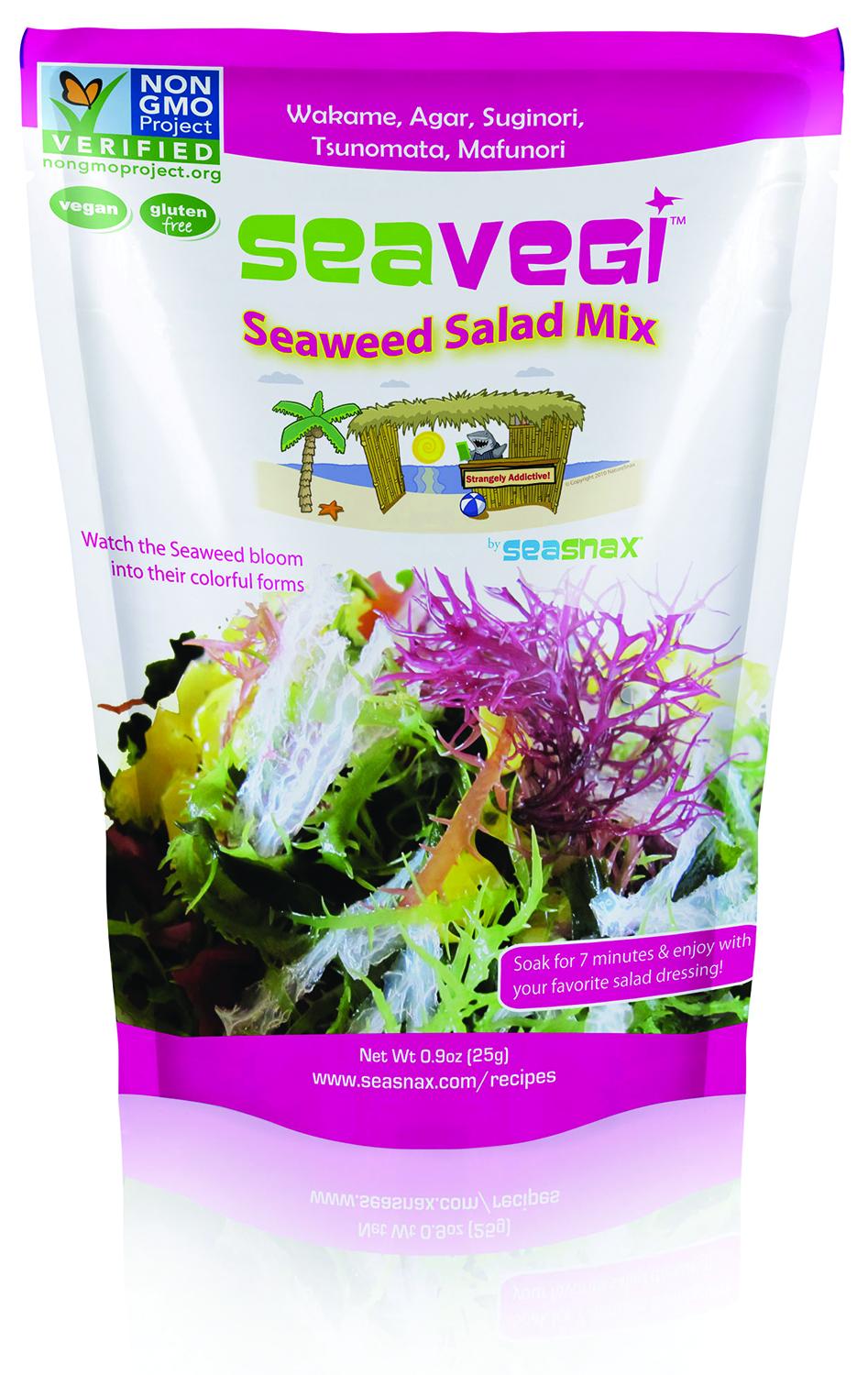Nutrients From the Sea
NUTRACEUTICALS
About 71% of the Earth’s surface is covered in water, with the oceans holding about 96% of all Earth’s water. Water is essential for all living things to survive (the average adult human body is composed of around 60% water). It should come as no surprise then that some of today’s nutritional ingredients are derived from some of the marine and plant life in these bodies of water around the world. Here is a look at some of these, including seaweed, microalgae, water lentils, fish and algal oil, and omega-3 fatty acids.
Seaweed and Microalgae
Seaweed is a macroalgae, part of the algae family. Functionally, seaweed has provided food manufacturers a source for ingredients such as alginates for thickening, gelling, stabilizing, and film forming. DuPont, for example, uses seaweed to extract carrageenan and alginates. Considered a dietary fiber in some regions, including the United States, alginates have been shown to have health benefits in weight management and in satisfying hunger.
With a focus on sustainability, DuPont established a sustainable seaweed program to help move the industry toward more sustainable seaweed harvesting and cultivating practices. A key product of the program is a set of Better Management Practices (BMPs) developed by an independent expert advisory group. The BMPs include social and environmental criteria and help anyone at any step in the seaweed supply chain to mitigate risk and evaluate and improve performance over time. As the program continues to be refined, DuPont will share it industrywide in the hope that the entire seaweed supply chain will use it to improve practices and share in the benefits of more socially and environmentally responsible seaweed management.
Seaweed and microalgae are growing in consumer appeal, as they satisfy trends such as clean label, natural, plantbased, and sustainability. Depending on the type of seaweed, it can be a source of nutrients such as vitamins, minerals, omega-3 fatty acids, and fiber. Different types of seaweed, such as chlorella and spirulina, have been used in healthy green beverages in the past, but now seaweed is popping up in other products as well. For example, in the healthy snack category there’s SeaSnax Chomperz crunchy seaweed chips. These bite-sized seaweed curls are wrapped in rice and lightly seasoned with sea salt. Another snack, SeaSnax Sheets, is roasted seaweed with organic extra virgin olive oil and sea salt. The snack is certified paleo by the Paleo Foundation and is keto-approved. These not only satisfy today’s healthy snacking trends, but also popular eating lifestyles.
Microalgae extracts and ingredients are increasingly being researched and developed. Some research is investigating how to make processing more sustainable while other research is studying the range of healthy nutrients derived from certain species. Ingredient suppliers are offering a growing number of innovative ingredients.
The startup company Triton Algae Innovations has developed a scalable and sustainable methodology to produce Chlamydomonas reinhardtii, a nutritious algae. The company’s green algae powder made from the nutritious algae is an excellent source of protein, has a complete amino acid profile, and is rich in vitamin A, iron, and omega-3, 6, and 9 fatty acids. Triton is currently scaling up manufacturing via strategic commercial partnerships and is continuing the process of introducing its algae ingredient into the consumer market. Earlier this year, Triton received a no-questions letter from the U.S. Food and Drug Administration regarding Triton’s conclusion that dried C. reinhardtii is GRAS under its intended conditions of use as a source of protein in foods at levels currently consumed, replacing other dietary proteins. In the letter, Triton states that dried C. reinhardtii is not intended for use in foods for which standards of identity exist, infant formulas, or foods regulated by the U.S. Dept. of Agriculture.
Another company, Algatechnologies (Algatech) specializes in the commercial cultivation of microalgae and its healthenhancing nutrients. Its self-affirmed GRAS AstaPure astaxanthin is derived from a microalgae called Haematococcus pluvialis and is a potent antioxidant. The company in February introduced AstaPure Arava, a clean label, all-natural whole-algae powder. This pure, whole food form contains all the naturally occurring constituents of Haematococcus pluvialis algae. The astaxanthin ingredient in AstaPure Arava complements the omega oils, fibers, proteins, vitamins, and phospholipids that are inherent in this unique strain of microalgae.
Algatech in August announced that it licensed the rights and intellectual property related to the production of β-1,3-glucan from F3 Platform Biologics, a U.S.-based biotechnology company. The technology licensed by Algatech is one that derives β-1,3-glucans from fermented microalgae Euglena gracilis. The β-1,3-glucans derived from Euglena gracilis are more concentrated and purer in their makeup due to their chemical structure. There are β-1,3-glucan ingredients derived from several sources, including yeast, oats, and mushrooms, and they are currently used in immune health products.
Marinova produces Maritech fucoidan extract, which is a sulfated fucose-rich polysaccharide derived from brown macroalgae. Maritech fucoidan extracts have gained novel foods status in the European Union. Research has demonstrated anti-cancer effects of Maritech fucoidan extract in preclinical animal and in vitro studies. Corban et al. (2019) utilized the fucoidan extracts from the Undaria pinnatifida species of brown macroalgae to identify mechanisms of action. The researchers identified that Maritech fucoidan beneficially affected several anti-cancer pathways, indicating that fucoidan can limit cancer cells in their ability to make proteins, utilize energy, and replicate. In addition, the research showed that Maritech fucoidan worked selectively against cancer cells but not against normal, healthy cells that were used as a control.
Lonza in March announced the launch of its new performance nutrition brand, Oceanix, in the United States and Canada. The unique phytoplankton ingredient is sustainably sourced from the ocean and meets the rising demand for natural, non-genetically modified, and vegan supplement products. Containing highly active antioxidant enzymes, including superoxide dismutase, as well as essential fatty acids, vitamins, amino acids, and minerals, the Oceanix ingredient offers potential benefits for physical performance. It also offers an increased physiological response against oxidative stress to aid recovery in a small, concentrated dose. It is suitable for use in a variety of sports nutrition applications, including dietary supplements, bars, drinks, and powders.
Marigot offers Aquamin, a multimineral complex derived from the Lithothamnion seaweed species that is sustainably harvested off the Northwest coast of Iceland. It has been evaluated in clinical trials and demonstrated to have proven efficacy in multiple health areas. For instance, it has been shown to ameliorate the symptoms of moderate to severe osteoarthritis, potentially through blockage of pro-inflammatory signaling pathways and cytokines. Zenk et al. (2018) demonstrated that Aquamin had a greater influence over calcium metabolism markers than a non-plant-derived calcium carbonate supplement or placebo in a study with 12 premenopausal women.
Fish Oil, Algal Oil, and Omega-3s
Fish oils are increasingly being consumed thanks to their omega-3 fatty acid content and related health benefits. Consumers are aware of benefits that omega-3s have for brain health and eye health. It is widely known that omega-3s are beneficial for heart health. In a metaanalysis of 13 randomized controlled trials, Hu et al. (2019) showed that marine omega-3 supplementation lowered the risk for myocardial infarction, coronary heart disease (CHD) death, total CHD, cardiovascular disease (CVD) death, and total CVD. Risk reductions appeared to be linearly related to marine omega-3 dose. The researchers noted that such inverse associations may be particularly evident at higher doses of marine omega-3 supplementation.
With the heightened interest in global sustainability and plant-based eating, algal oil and algal-derived omega-3s, particularly docosahexaenoic acid (DHA), are growing in demand. Companies are introducing powdered versions, versions with increased concentrations of DHA, and more, resulting in unique food products to feed a growing population. For example, Algarithm reports that Good Catch, a plant-based seafood innovator, had chosen Algarithm’s plant-based, wild-sourced AlphaMega3 algal DHA oil to nutritionally enhance its line of fishless seafood. Good Catch’s Crab-Free Cakes, Fish-Free Tuna, Fish-Free Sliders, and Fish-Free Burgers contain 350 mg of AlphaMega3 algal DHA oil. Good Catch uses a proprietary six-legume blend of peas, chickpeas, lentils, soy, fava beans, and navy beans to deliver protein and a texture that resembles the flakiness of seafood. Algal oil provides seafood flavor and omega-3s.
Other companies have been busy developing algal oils with varying DHA levels and versatile formats. PLT Health offers élantria Algal DHA, produced from non-genetically modified microalgae Schizochytrium sp. élantria Algal DHA delivers 40% DHA by weight in a non-concentrated form. Algal oils rich in DHA are known to be very sensitive to oxidation, which can detract from both nutritional and organoleptic properties of an ingredient. élantria Algal DHA is stabilized using a process called Qualitysilver, which both inhibits the onset of oxidation and prevents the oxidative cascade. This approach ensures a high-quality ingredient with a long shelf life, guaranteed at more than 2 years.
ADM offers Onavita algal DHA powder as part of its line of omega-3 ingredient solutions. Onavita algal DHA powder can be used in a wide variety of dietary supplements and fortified food products, such as nutritional bars and powdered beverages. It provides vegan and allergen-free labeling options for food, beverage, and supplement developers.
Another company, Bioriginal, has introduced a microalgae-derived DHA oil called AlgalPure DHA that contains a minimum of 40% DHA. AlgalPure DHA is produced from the Schizochytrium microalgae strain, which is Novel Food approved, hence making the ingredient suitable for a wide range of applications.
Finally, DSM offers life’sDHA, which is made from a sustainable, natural algal oil source, and life’sOMEGA, an algaesourced eicosapentaenoic acid and docosahexaenoic acid combined ingredient.
Water Lentils
Plant protein extracted from water lentils (the Lemnaceae aquatic plant known as duckweed), has a Protein Digestibility Corrected Amino Acid Score (PDCAAS) of 0.93. LENTEIN from Parabel received an FDA GRAS no objections letter and is recognized as a traditional food by Health Canada. The water lentil crop has the highest yield per acre of all crops and is grown in sustainable hydroponic ponds in Florida. With a minimal environmental footprint, the crop doubles its biomass every day (it is harvested every day). The water in the ponds is recycled to 98% so the water footprint is very low.
LENTEIN has high levels of essential amino acids and branched chain amino acids, contains dietary fiber and omega- 3, and is hypoallergenic. The first commercial ingredient has around 45% protein density and another that is in the development pipeline is a protein concentrate with 65% protein density.
Next month’s Nutraceuticals section will discuss ingredients that may have stress-relieving effects.
REFerences
Corban, M., M. Ambrose, J. Pagnon, et al. 2019. “Pathway Analysis of Fucoidan Activity Using a Yeast Gene Deletion Library Screen.” Mar. Drugs. 17(1): 54.
Hu, Y., F. B. Hu, and J. E. Manson. 2019. “Marine Omega-3 Supplementation and Cardiovascular Disease: An Updated Meta-Analysis of 13 Randomized Controlled Trials Involving 127, 477 Participants.” J. Am. Heart Assoc. 8(19).
Zenk, J. L., J. L Frestedt, and M. A. Kuskowski. 2018. “Effect of Calcium Derived from Lithothamnion sp. on Markers of Calcium Metabolism in Premenopausal Women.” J. Med. Food. 21(2): 154–158.








